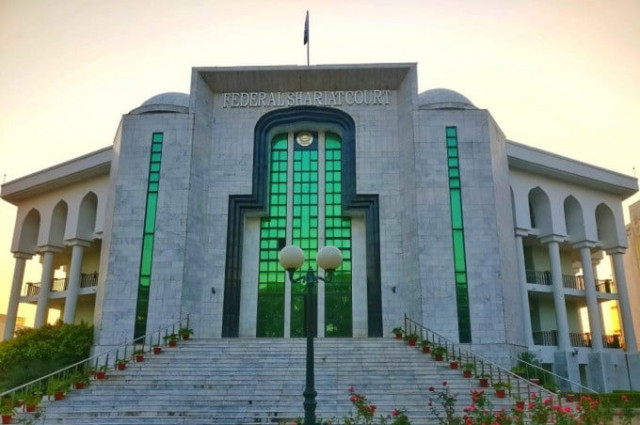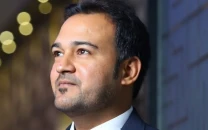AGP challenges Shariat court’s jurisdiction in Ribah case
Says govt, parliament want to implement all laws in accordance with principles of Islam

The Attorney General for Pakistan (AGP) has challenged the Federal Shariat Court's (FSC) jurisdiction in the abolition of the interest-based financial system case.
The court has given the AGP till November 17 to answer the questions of the court and present his arguments on the court’s jurisdiction to hear the case.
A three-member bench, headed by FSC Chief Justice Muhammad Noor Meskanzai, heard the case regarding the abolition of the interest-based financial system.
AGP Khalid Jawed Khan appeared before the court, stating that he had submitted his written reply to which the FSC chief justice said: “You were given a questionnaire by the bench but you did not answer it.”
The AGP responded that the answers to the court’s questionnaire were being prepared and would be submitted soon.
Read PM Imran prefers AGP over law ministry
As the hearing commenced, AGP Khalid while reading out his written reply, took the position that the government and parliament want to implement all laws in accordance with the principles of Islam and this work will be completed through legislation.
The Supreme Court had in 2002 remanded the case to the FSC declaring that the court should review all its aspects including jurisdiction, he maintained.
The AGP said that the FSC is not empowered to hear any matter related to any provision of the Constitution but a plan of action will be formulated in a legal and constitutional manner to achieve the objective of abolishing the interest-based system.
The AGP said that before he presented his arguments on the merits of the case, he would present his arguments on the court’s jurisdiction, adding that it was possible that once the court heard the federal position on jurisdiction, there would be no need to hear the case any further.
The AGP requested that the case be adjourned until the second week of November so that he could prepare his arguments for the next hearing.
The chief justice responded that the court had already received the position of the AGP Office, adding that the parties had submitted their responses to that position which would be provided to the AGP.
During the hearing, the leaders of Jamaat-e-Islami Professor Ibrahim and Dr Fareed Paracha objected to the position of the AGP.
Professor Ibrahim questioned, "Does the attorney general now want to say that this court has no jurisdiction? This case was remanded here by the Supreme Court on June 24, 2002, which is a period of 19 years.”
The AGP Office had raised these objections even while the case was being heard in the Supreme Court, but these objections were not accepted there either, he argued.
Prof Ibrahim suggested that the directions given in the Supreme Court’s remand order be regulated and a list be populated accordingly to proceed with the case, adding that there was no justification for giving the AGP any extra time.
He said that no more years should be given as 19 years had passed since the case was remanded by the Supreme Court.
Dr Paracha said that eradication of the interest-based financial system from the country was the responsibility of the government. Only one sentence was written in the constitution, he argued, adding that the interest-based system would be abolished from the country as soon as possible.
“Half a century has passed and thousands of laws have been enacted but no law has been enacted to abolish the interest-based system,” he said. “The position of the federation on the jurisdiction of this court is already clear.”
The chief justice asked the AGP whether the elimination of usury is the responsibility of the government. “What steps has the government taken so far to enact legislation for the abolition of the interest-based system?”
The court told the Jamaat-e-Islami leaders that the court was giving the AGP the right to clarify his arguments and once his response is received the case would move forward.
The court accepted the AGP's request for time and adjourned the case till November 17.



















COMMENTS
Comments are moderated and generally will be posted if they are on-topic and not abusive.
For more information, please see our Comments FAQ